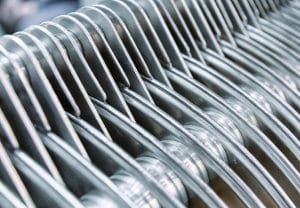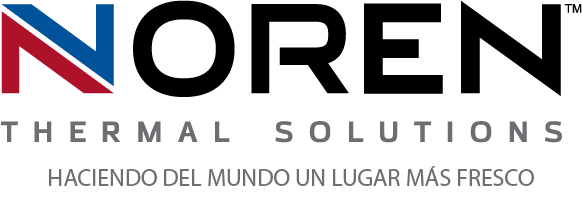 Dealing with electrical waste heat in an efficient and consistent manner is a necessary burden for companies that utilize technology. These days, that’s virtually every company across every industry, and the more technology dominates each industry, the more important it is to implement methods of maintaining it properly. That includes implementing cooling solutions that prevent the applications from overheating – a process that was traditionally left to air conditioners or air compressors. Today, however, increasingly more companies are relying on more advanced thermal management solutions, such as heat exchangers, to manage waste heat in a more efficient and cost-effective manner.
Dealing with electrical waste heat in an efficient and consistent manner is a necessary burden for companies that utilize technology. These days, that’s virtually every company across every industry, and the more technology dominates each industry, the more important it is to implement methods of maintaining it properly. That includes implementing cooling solutions that prevent the applications from overheating – a process that was traditionally left to air conditioners or air compressors. Today, however, increasingly more companies are relying on more advanced thermal management solutions, such as heat exchangers, to manage waste heat in a more efficient and cost-effective manner.
Alternatives for electrical enclosure cooling
The most frequent and universal use case for modern heat exchangers is the cooling of electrical enclosures of various types. For example, control panels and other enclosures are often an important part of industrial technologies, and the amount of sensitive electrical components housed within each enclosure makes efficient cooling essential. Modern heat exchangers are designed to optimize the process by utilizing natural, easy to maintain heat transfer principles. Within a heat exchanger unit, the cooling fluid can rapidly absorb the waste heat that an application produces, then transfer the heat safely away from the components within the enclosure.
Specialized heat exchangers for wastewater treatment
For most industries, the advancement of technology has been accompanied by advancements in the electrical thermal management solutions they rely on. The use of heat exchangers introduced and showcased the value of utilizing natural processes to transfer waste heat and prevent overheating more efficiently. With that ability, many modern iterations of heat exchangers can be specially designed to turn waste heat into useful energy. For example, in many companies that utilize in-house wastewater treatment, the process is heavily reliant on the application of heat. Using the waste heat that heat exchangers collect, companies can repurpose it to reduce the overall energy needs of wastewater treatment, or other similar processes.
Custom thermal pins for plastic mold cooling
Applications such as electrical enclosure cooling and streamlining wastewater treatment processes are operations that occur in a wide range of industries. However, the ability to rapidly transfer heat with minimal energy and in a highly customized manner has also proven beneficial for several, more specific applications in certain industries. For example, in the plastic mold industry, custom-designed thermal solutions known as thermal pins can transform the plastic mold cooling process, leading to more frequent and higher-quality yields.
For more information about managing waste heat more efficiently in modern industries, call Noren Thermal Solutions in Taylor, TX, at 866-936-6736.







